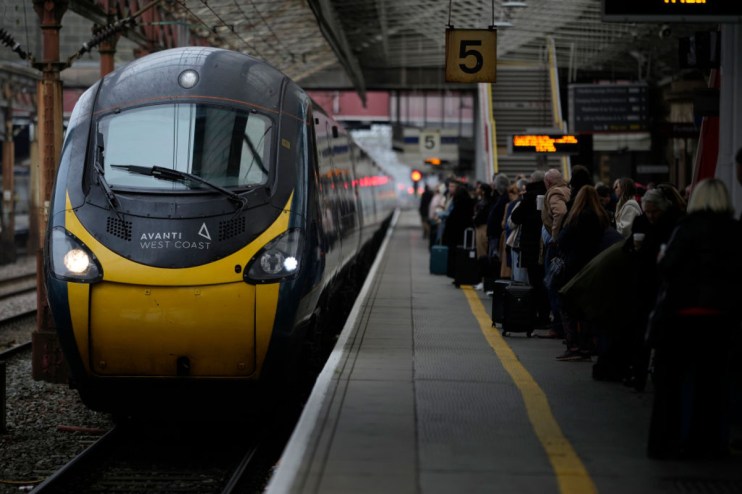
Plans for a new rail line connecting the West Midlands to the North West could be delivered at just 60 per cent of the cost of HS2’s cancelled Northern leg, according to Manchester Mayor Andy Burnham.
The proposed 80km line, backed by a consortium of businesses and politicians, would run from Lichfield in Staffordshire to High Legh in Cheshire.
The goal of the project would be to fill the void left after the government’s decision to halt the high-speed Birmingham to Manchester link due to cost concerns.
Burnham highlighted research indicating that the project could be completed for between 60 per cent and 75 per cent of the original HS2 cost, with funding expected to come from both public and private sources.
He said businesses across the North had expressed a “clear appetite” to enhance rail services in the region. Poor transport connectivity has been identified as one of the key drivers of low productivity rates.
“The private sector is ambitious for the future of this country and it wants to work in a place where they can do business really effectively.
“I have so many people in business come up to me saying what’s happening with the project because they’re struggling on Avanti West Coast every week to do their business – they’re fed up.
“We need to change the way we’re funding these projects and the cost to the tax payer could be spread out over the rest of this century, depending on how exactly you fund it.
“It’s clear from this research that you can do this in ways that takes the full dead-weight cost off the tax payer.”
What would the Midlands to North West line look like?
While specifics of the final project are yet to be confirmed, the rail improvements laid out in the report could reduce the journey time from Manchester Piccadilly to London Euston by approximately 30 minutes.
Journey times could come down from 2 hours and 37 minutes to just over two hours.
Although this is about 15 minutes slower than the what we might have seen had the Northern leg of HS2 not been axed, Burnham said he believed people didn’t care about “having the fastest trains in the world”, and that “better than they are now” would be sufficient.
The new rail link could deliver a substantial economic boost, potentially adding £70bn to local economies and generating £24bn in annual tax revenue, according to research by the consortium behind the proposal.
West Midlands Mayor Richard Parker, who helped compile the report, said: “This isn’t HS2 resurrected.
“We estimate we’ll see around 85 per cent of the benefits that Phase Two of HS2 would have delivered – but for a fraction of the cost. This is more viable, more affordable, and significantly de-risked.”
How will the rail line be funded?
The precise breakdown of public and private contributions to the project has yet to be defined, but Burnham pointed to France, the first European country to employ this funding model, as evidence of its viability.
In 2017 the LGV Sud Europe Atlantique, a high-speed rail line linking Tours and Bordeaux, was financed through a Private Public Partnership, with the private consortium LISEA funding 50 per cent of the costs.
The rest came from French authorities and the European Union. LISEA is responsible for the operation and maintenance of the line for 50 years while ownership remains with the state.
In addition, Burnham said the consortium had considered the option of imposing a Land Value Tax on areas along the line which saw an uplift as a result of the work.
He said: “If you look at the Elizabeth line, it raised land value right along where the stations are, and this infrastructure would do the same.
“Why wouldn’t we think innovatively about contributions in different ways – both voluntarily from businesses and even compulsorily.”